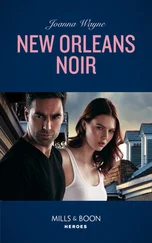Джон Краули - New Haven Noir
Здесь есть возможность читать онлайн «Джон Краули - New Haven Noir» весь текст электронной книги совершенно бесплатно (целиком полную версию без сокращений). В некоторых случаях можно слушать аудио, скачать через торрент в формате fb2 и присутствует краткое содержание. Город: New York, Год выпуска: 2017, ISBN: 2017, Издательство: Akashic Books, Жанр: Детектив, на английском языке. Описание произведения, (предисловие) а так же отзывы посетителей доступны на портале библиотеки ЛибКат.
- Название:New Haven Noir
- Автор:
- Издательство:Akashic Books
- Жанр:
- Год:2017
- Город:New York
- ISBN:978-1-61775-541-5
- Рейтинг книги:5 / 5. Голосов: 1
-
Избранное:Добавить в избранное
- Отзывы:
-
Ваша оценка:
- 100
- 1
- 2
- 3
- 4
- 5
New Haven Noir: краткое содержание, описание и аннотация
Предлагаем к чтению аннотацию, описание, краткое содержание или предисловие (зависит от того, что написал сам автор книги «New Haven Noir»). Если вы не нашли необходимую информацию о книге — напишите в комментариях, мы постараемся отыскать её.
New Haven Noir — читать онлайн бесплатно полную книгу (весь текст) целиком
Ниже представлен текст книги, разбитый по страницам. Система сохранения места последней прочитанной страницы, позволяет с удобством читать онлайн бесплатно книгу «New Haven Noir», без необходимости каждый раз заново искать на чём Вы остановились. Поставьте закладку, и сможете в любой момент перейти на страницу, на которой закончили чтение.
Интервал:
Закладка:
Lionel Patton. With black-framed glasses off, pretty good looking. Naturally modest in a way that hard-nosed Eastern Yale women liked. Khakis, white shirt. High school class president and valedictorian and captain of his high school tennis team. (I kid you not.) Skating lessons. Flying lessons. Chess lessons. Golf lessons. Lessons in everything. The well-bred, high-achieving Midwesterner — very much a Yale tradition. (A tradition that helps keeps Yale’s coffers full and flowing, generation after generation.)
Here at Yale, a music major. (Because he could. Because he was going back to inherit and oversee four thousand highly profitable acres of soybeans and corn, so he could major in any damn thing he wanted.)
And by the peculiar chain of circumstance that produced Lionel Patton, by the coincidences and alignments of his particular existence, he had never known anything but brightness, cheerfulness, good fortune. Not a moment of doubt or deprivation. By the concatenations of luck and privilege and advantage and happenstance, he had never confronted the forces of darkness. He went whistling down Edgewood Avenue. Literally. (I knew it because I had heard him — whistling the same French horn part in Mahler or Mozart that I heard him practicing at the house.) And when the forces of darkness swarmed around him, it was unexpected, inexplicable, and he was ill-prepared. It was an ambush, in a way, that went beyond the literal. Beyond Edgewood.
Once the cops were gone and Lionel was cleaned up, and he sat down with us (the bong on the wooden shipping-crate-cum-coffee-table between us — Lionel did not typically partake, though the rest of us felt that his encounter certainly merited a fresh bowlful), I felt the occasion called for a little bit of philosophical discussion from safely within our walls.
“Lionel, you can’t discuss motives and ethics and right and wrong with fifteen-year-old black kids on Edgewood Avenue.”
“I just want to understand why they would do this...”
“Why? ’Cause they wanted your sneakers,” said Roger.
“Why? ’Cause this is what they know. ’Cause this is what they see. ’Cause this is their world,” Larry said.
“Then we have to try to change it. We have to try to make things better for them.” He looked at us with bright resolution. “I’m gonna reach out to them.”
Oh Jesus.
“No you’re not.”
“Listen,” I said. “Marcus, Keneisha’s little boy? Six years old. He tried to hold me up with a sharpened pencil.”
“Serious?”
“That’s the world he knows. That’s what he aspires to. And you and I are not changing that in a semester.”
“But what if they see that I care about them? I’ll bring them a dozen donuts. We’ll get started on better footing, they’ll see I’m a nice guy.”
Donuts!
“Lionel, they know you’re a nice guy. That’s why they’re doing this to you.”
You have success, happiness, joy, privilege written so loudly on you, Lionel, they can’t take it. They can’t take you ambling up Edgewood, whistling. Whistling classical music at that.
The quest for understanding. The clearly marked trail of knowledge. It had been a way of life for Lionel, a unifying theme. But here, there was no understanding . That was darkness’s creed, the wild steed it rode, its trusty companion, part and parcel of its power. No understanding . Blunt irrationality. Comprehensive incomprehension.
Officer Perez was right about everything, I was sure. But he turned out to be wrong about the use of weapons.
The next time it happened to Lionel, there was a knife.
The knife changed everything.
But not in the way you think.
Not in the way any of us thought.
Same three kids. And feeling thrilled, victorious, adrenalized, invincible from the success of their previous encounter, no surprise, they were not done with Lionel.
Same cops — Landry and Perez. I’m glad they happened to be on duty that day, to come around to our Edgewood house again, to be there to experience the same disbelief that we all did. The same intersection of Yale and Edgewood. The same sobering result. The same rethinking of all our assumptions.
Because with the unfolding of that knife, the flash of its blade, something else unfolded and flashed in Lionel Patton. Some new edge was suddenly exposed.
The appearance of that knife, gleaming there in the afternoon sunlight — an expression of Edgewood itself?... of accelerating events?... bringing them literally and figuratively to a point? — the appearance of the knife changed the calculus. As it always does.
Held there, inches from his chest, arrogantly — creating pure power, pure powerlessness. Generating in Lionel a sudden complex math of threat, insult, terror, instinct, rage, memory, confusion, the formula’s coefficients arranging and rearranging themselves in milliseconds.
If you’ve ever had a knife held at you (and at that moment in time, New Haven, 1976, many of us had), then you know how it alters the moment.
And oh, it altered the moment for Lionel.
His French horn — his trusty French horn — unexpectedly, from stage right — swung into action. Twenty mighty, unexpected, highly effective pounds of defense — and offense, as it turned out.
He knew his weapon intimately, after all. He’d swung it onto buses, under desks, into car backseats, balanced it on bicycles, lugged it since the age of seven. He had total control of it. He could wield it. Hefting twenty pounds for over twelve years, your carrying arm and hand get strong. Unexpectedly, acutely strong. Uncannily precise. He was at one with it.
He punched the French horn case at the knife and knocked it out of the first kid’s fist with such force, and to such stunned surprise, that the knife tumbled to the sidewalk.
Clearly, three armed teenage thugs on Edgewood Avenue were not expecting the attack of a French horn.
And when the kid bent down to retrieve it, the instrument swung with equal force and violence at his head. He was literally dumbstruck.
And when the other two kids came at Lionel in blind, unthinking retaliation, he karate-kicked the first one — perfectly, effectively, in the gut — then swung the horn at the second, its twenty pounds catching him solidly in the lower back, sending him to the sidewalk doubled up in pain.
Like I said: French horn, All-Ivy.
Amid all the music and golf and chess and skating lessons back in Lincoln, Nebraska, Lionel had years of martial arts lessons as well, and had been sternly and repeatedly instructed never to deploy what he had learned; it was an art and a discipline, and such stern instruction it must have been, because his teachers could not imagine a circumstance in which Lionel Patton, bright-eyed, cheerful, upbeat, friendly Nebraska farmer’s son, would ever have to actually use it. But fortunately, into that meticulously developed cerebral cortex of his at that moment came a neural signal that perhaps this was the appropriate deployment of those long-honed martial skills. And maybe in the end that was fortuitous. Because it added the element of surprise — for Lionel himself, and therefore for his adversaries.
Like I said: lessons in everything.
A symphony of violence, with a French horn solo. You can hear the solo, can’t you? Heraldic sounding — but only in our imaginations. In reality, a solo of thumps and thuds.
And then, a final flourish, and a predictable one, as it turned out.
As the kids backed away, stunned — holding their heads, doubled up in pain, unsure what to do next — Lionel grabbed the knife off the sidewalk.
Did he hold it to their chests? To their throats? Turn the tables on them? Show them how it feels to have a knife held inches from you?
Читать дальшеИнтервал:
Закладка:
Похожие книги на «New Haven Noir»
Представляем Вашему вниманию похожие книги на «New Haven Noir» списком для выбора. Мы отобрали схожую по названию и смыслу литературу в надежде предоставить читателям больше вариантов отыскать новые, интересные, ещё непрочитанные произведения.
Обсуждение, отзывы о книге «New Haven Noir» и просто собственные мнения читателей. Оставьте ваши комментарии, напишите, что Вы думаете о произведении, его смысле или главных героях. Укажите что конкретно понравилось, а что нет, и почему Вы так считаете.
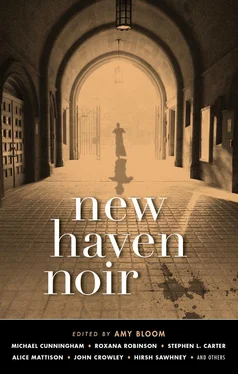
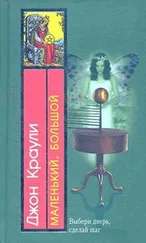
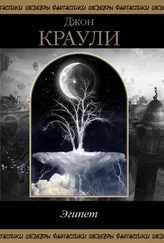


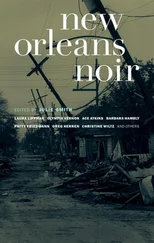
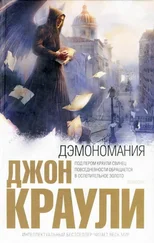

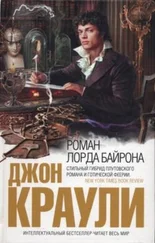

![Джон Краули - Ка - Дарр Дубраули в руинах Имра [litres]](/books/406053/dzhon-krauli-ka-darr-dubrauli-v-ruinah-imra-litre-thumb.webp)

